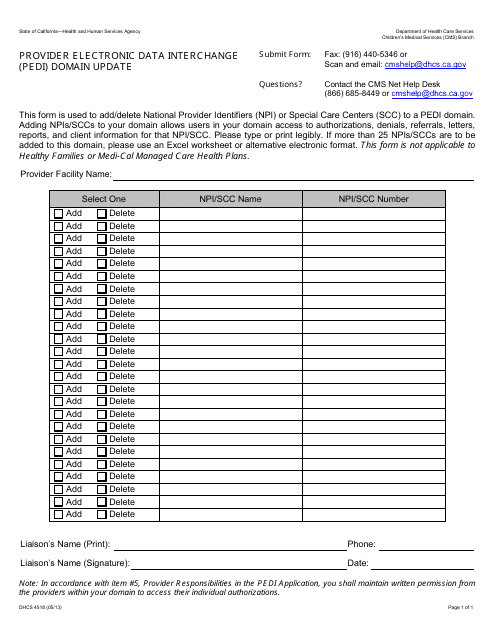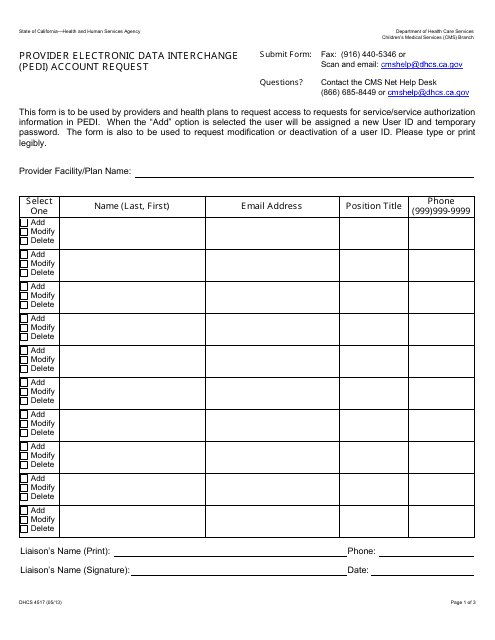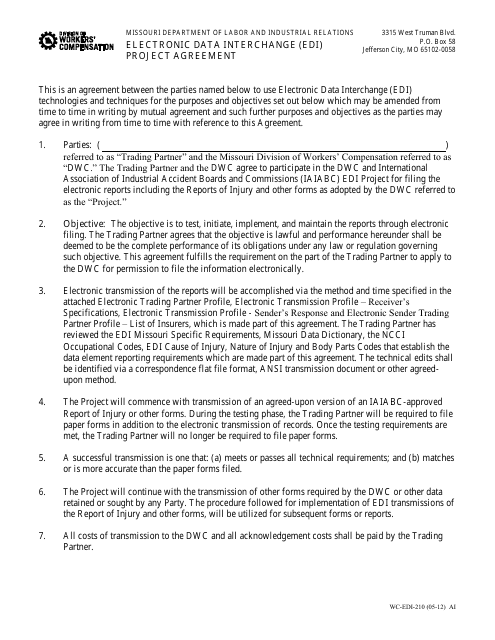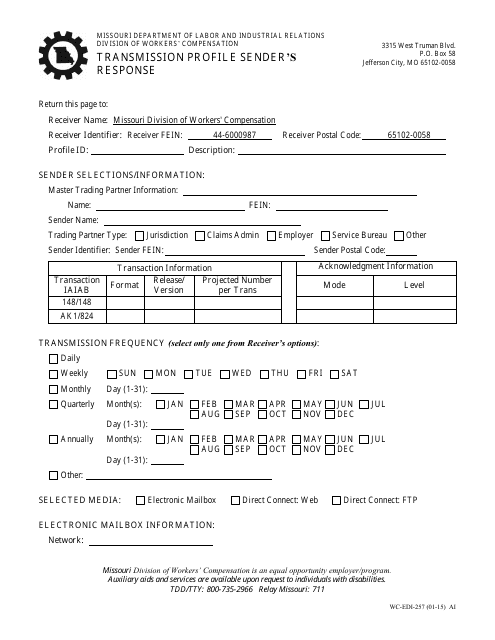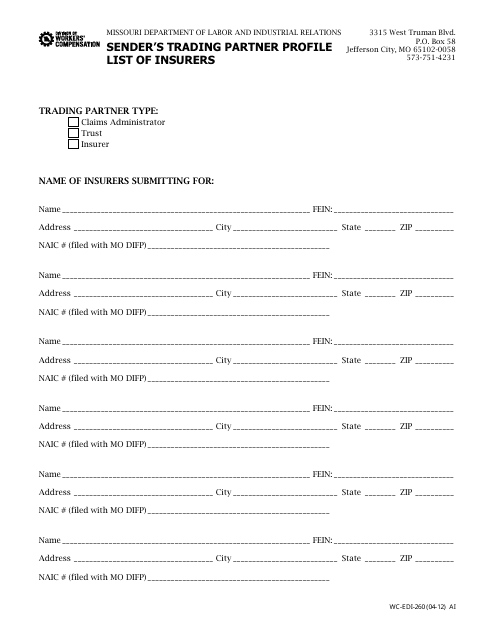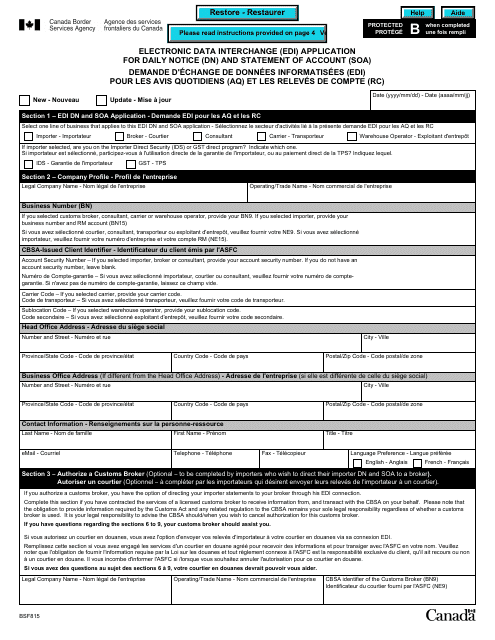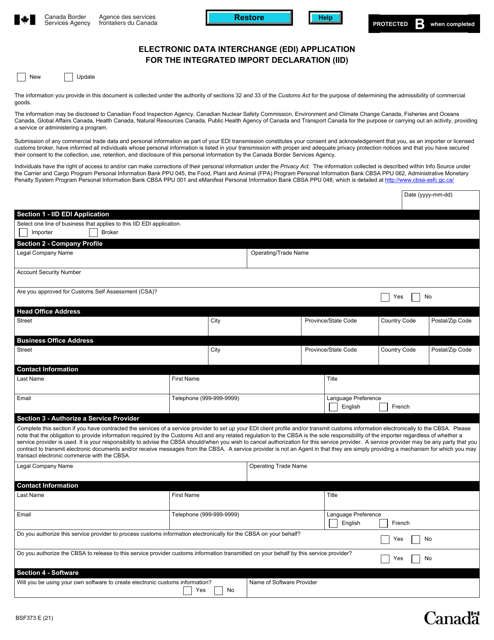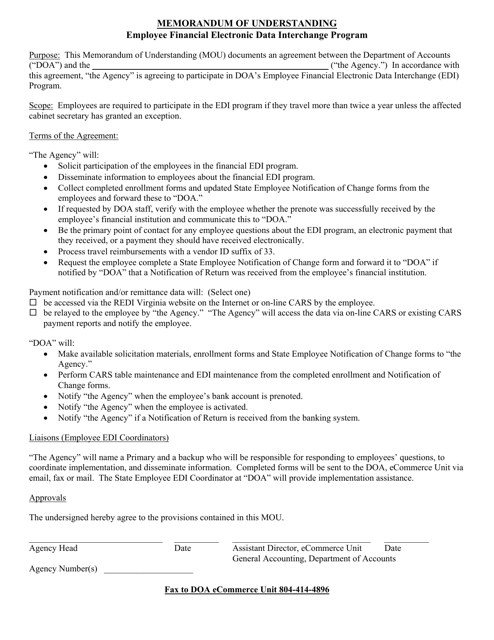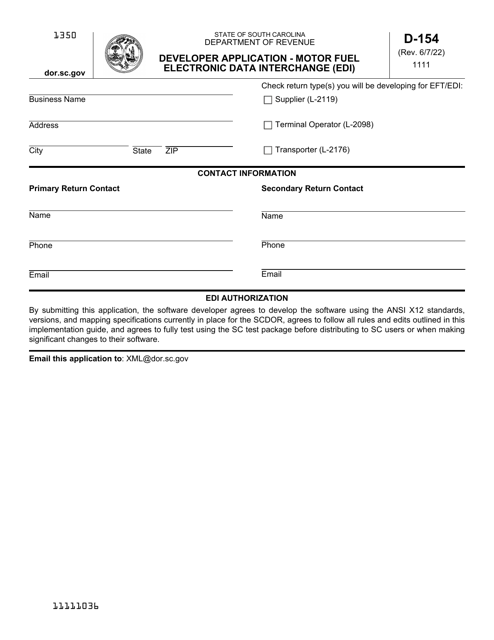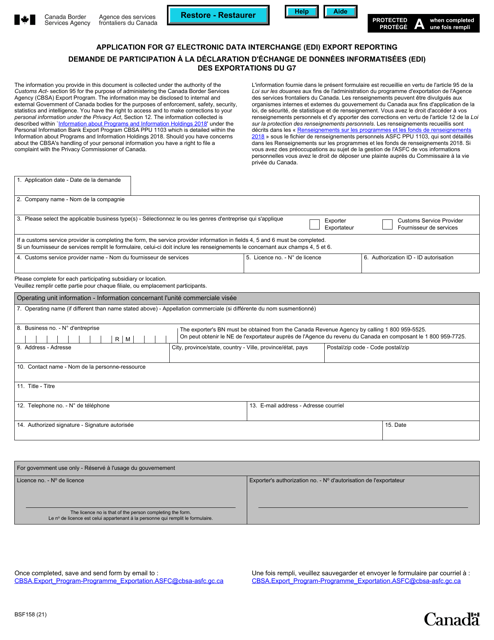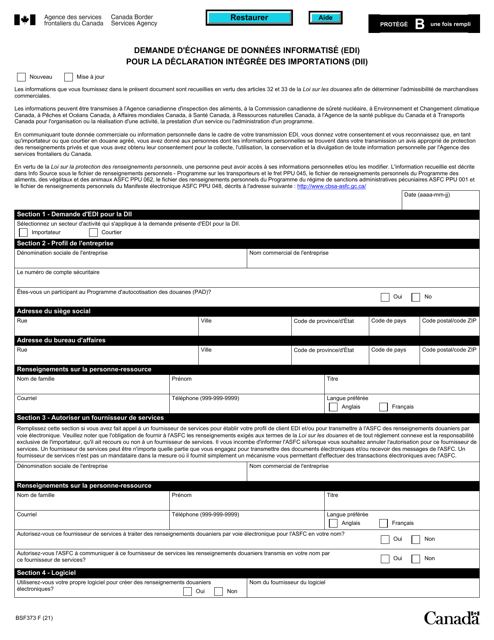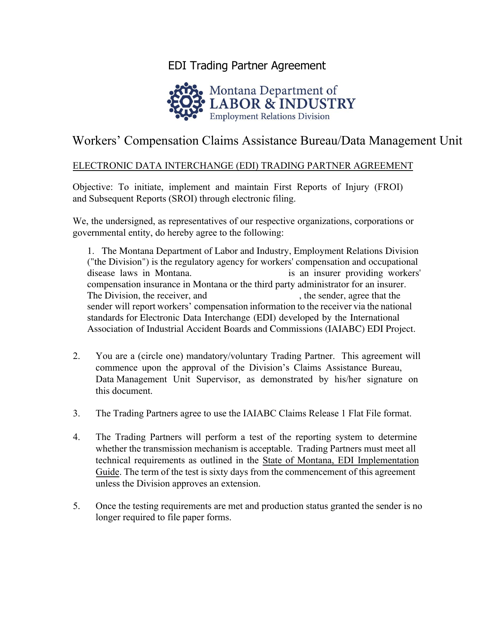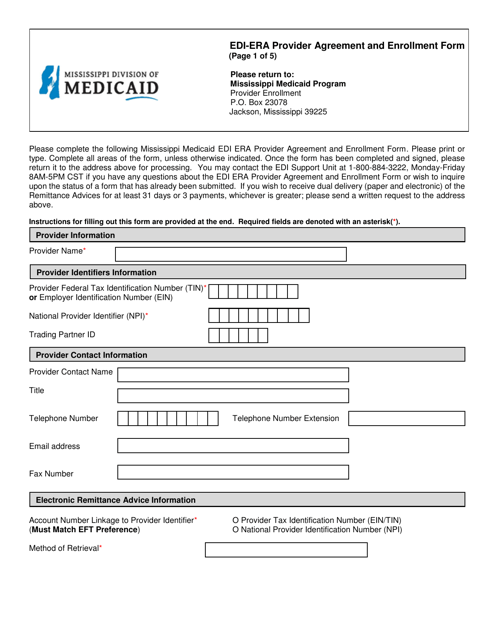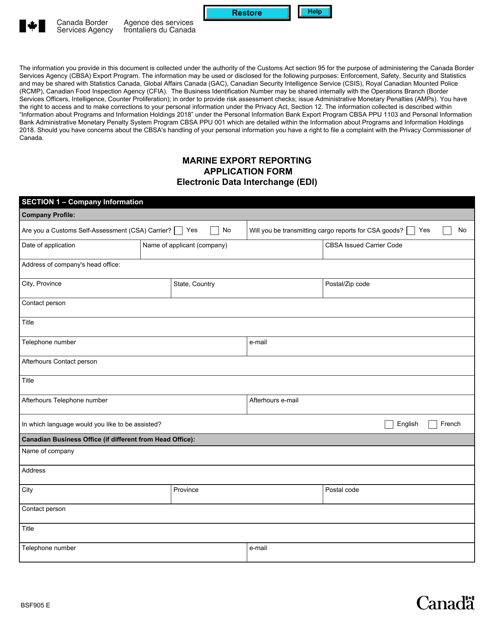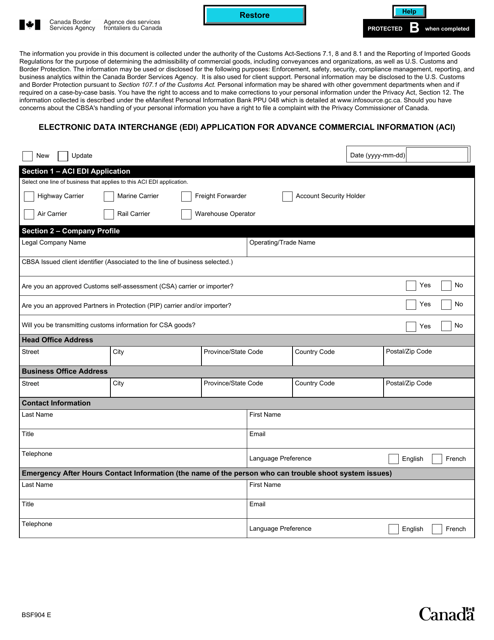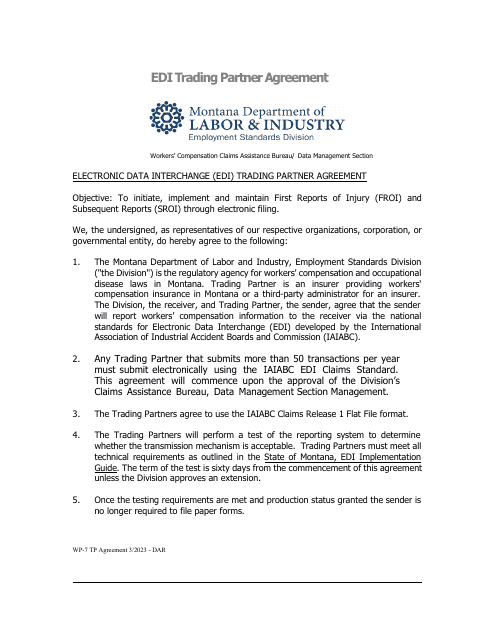Electronic Data Interchange Templates
Electronic Data Interchange (EDI), also known as Electronic Data Interchange Form (EDI Form) or E-Data Interchange, is a standardized method for the electronic exchange of business documents between trading partners. This collection of documents encompasses various forms and applications used for transmitting and receiving electronic data in different contexts.
EDI plays a crucial role in streamlining business transactions, eliminating the need for paper-based documentation, and improving efficiency and accuracy in data exchange. It enables organizations to seamlessly share information such as purchase orders, invoices, shipping notices, and other relevant documents in a structured and automated format.
For instance, the WC-EDI-257 Transmission Profile Sender's Response in Missouri is an example of a form that allows businesses to respond to transmission profile requests, ensuring seamless communication within the state. Similarly, the BSF373 Electronic Data Interchange (EDI) Application for the Integrated Import Declaration (IID) in Canada facilitates the electronic submission of import declarations, enhancing the customs clearance process.
Whether it's the D-154 Developer Application for Motor Fuel Electronic Data Interchange (EDI) in South Carolina or the French-language BSF373 Demande D'échange De Données Informatisées (EDI) Pour La Déclaration Intégrée Des Importations (DII) in Canada, these documents exemplify the diverse applications and adaptability of EDI.
With EDI, businesses can enhance their supply chain management, improve data accuracy, and expedite the order-to-cash cycle. The utilization of electronic data interchange forms or EDI forms minimizes manual data entry, reduces errors, and increases overall operational efficiency. By adopting this electronic exchange of information, organizations can optimize their business processes, achieve cost savings, and establish seamless integration with their trading partners.
In summary, electronic data interchange (EDI) is an essential tool that enables the exchange of business documents in a standardized, electronic format. This collection of EDI forms and applications facilitates smooth data transmission, enhances business efficiency, and eliminates traditional paper-based processes. Embracing this digital transformation can empower businesses to stay competitive, improve collaboration with trading partners, and achieve operational excellence.
Documents:
18
This form is used for updating the Provider Electronic Data Interchange (Pedi) domain in California.
This Form is used for requesting a Provider Electronic Data Interchange (Pedi) Account in California. It allows healthcare providers to electronically submit and receive data from the California Department of Health Care Services.
This Form is used for establishing an Electronic Data Interchange (EDI) project agreement in the state of Missouri.
This form is used for sending a response from the sender's transmission profile in regard to workers' compensation information in the state of Missouri.
This document provides a list of insurers for the state of Missouri that can be used as a reference in the WC-EDI-260 form.
This form is used for applying for daily notice and statement of account through electronic data interchange (EDI) in Canada. The form is available in both English and French languages.
This document outlines the agreement between the state agency in Virginia and other parties regarding the use of Electronic Data Interchange (EDI) for communications and transactions. It sets out the terms and conditions for exchanging electronic documents efficiently and securely.
This document is used for establishing an Electronic Data Interchange (EDI) Trading Partner Agreement in the state of Montana. It outlines the terms and conditions for electronic data exchange between trading partners.
This document is used for establishing an agreement and enrollment between healthcare providers and the Mississippi Electronic Data Interchange (EDI) system.
This form is used for reporting marine exports through Electronic Data Interchange (EDI) in Canada.
This form is used for applying for the Electronic Data Interchange (EDI) Application for Advance Commercial Information (ACI) in Canada.
This form is used for establishing a trading partner agreement in the state of Montana for EDI (Electronic Data Interchange) purposes.

